108 CD / Johann Sebastian Bach. Die Motetten / The motets
Description
"You can be pleased to hear an interpretation which sets standards with its ideal transparency, its sensuality and its emotionally rich intensity. Here there are no mannerisms to bother us, no rhetorical gimmicks or vocal inadequacies. The almost thirty singers always retain their vocal serenity, whether in the double-choral furore of “Singet dem Herrn” or in the delicacy of the “Fürchte dich nicht” (Be not Afraid) motet. Everything sounds relaxed but never trivial, with the sound mix perfectly balanced and performed with verbal discipline. If you do not yet have this Bach treasure in your collection, look no further than here." (klassik heute)
(...) verve, unusually articulate expressive gestures that arise from the texts, exceptional ensemble precision, illuminating inner detail, and an overall atmosphere that conveys a sense of occasion and gives the distinct feeling that these singers both understand and love this music. These are uncompromisingly exciting performances that show, given a virtuoso ensemble and some of the most challenging music ever written for voices, just how captivating choral music can be." (classics today)
8 reviews for 108 CD / Johann Sebastian Bach. Die Motetten / The motets
You must be logged in to post a review.

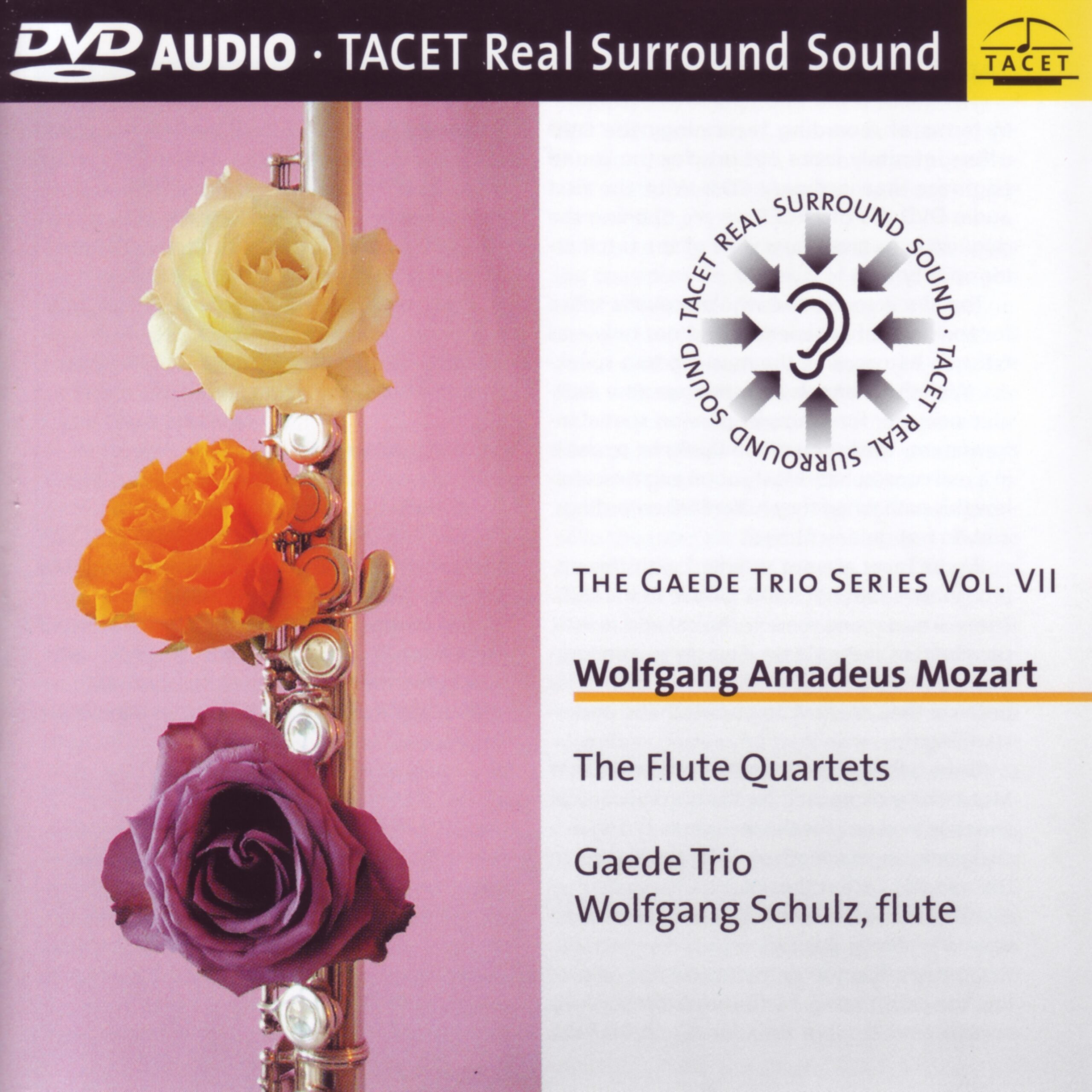
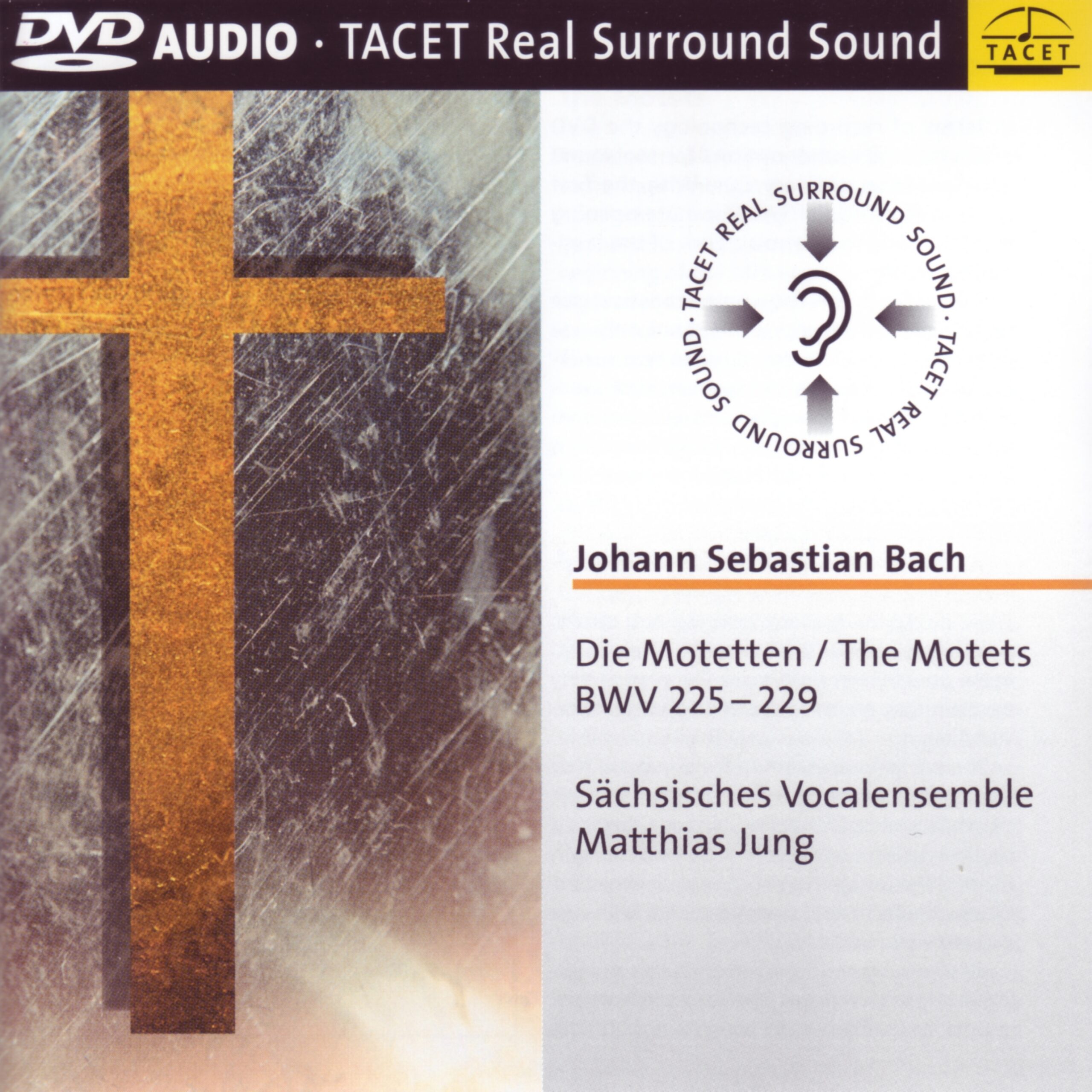
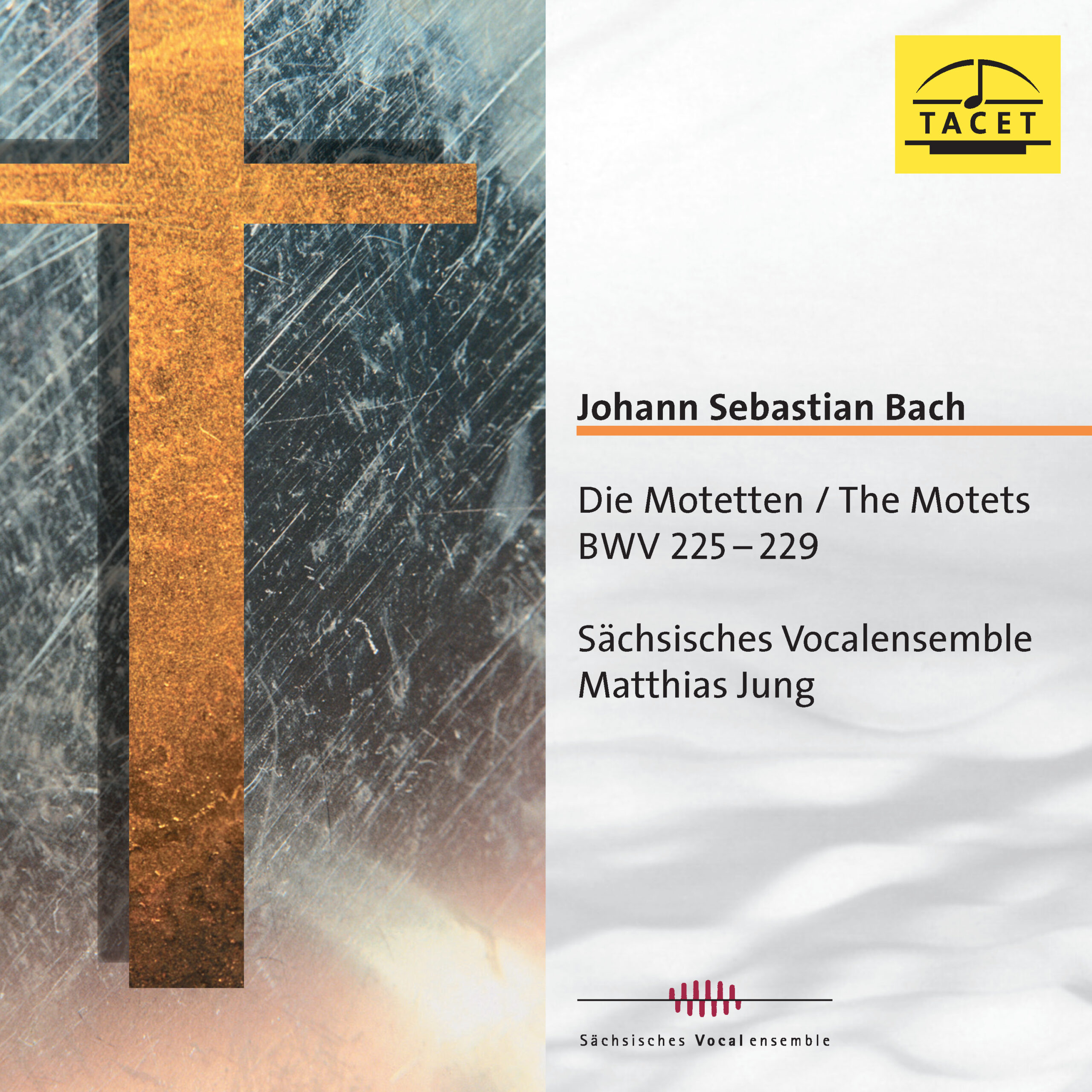
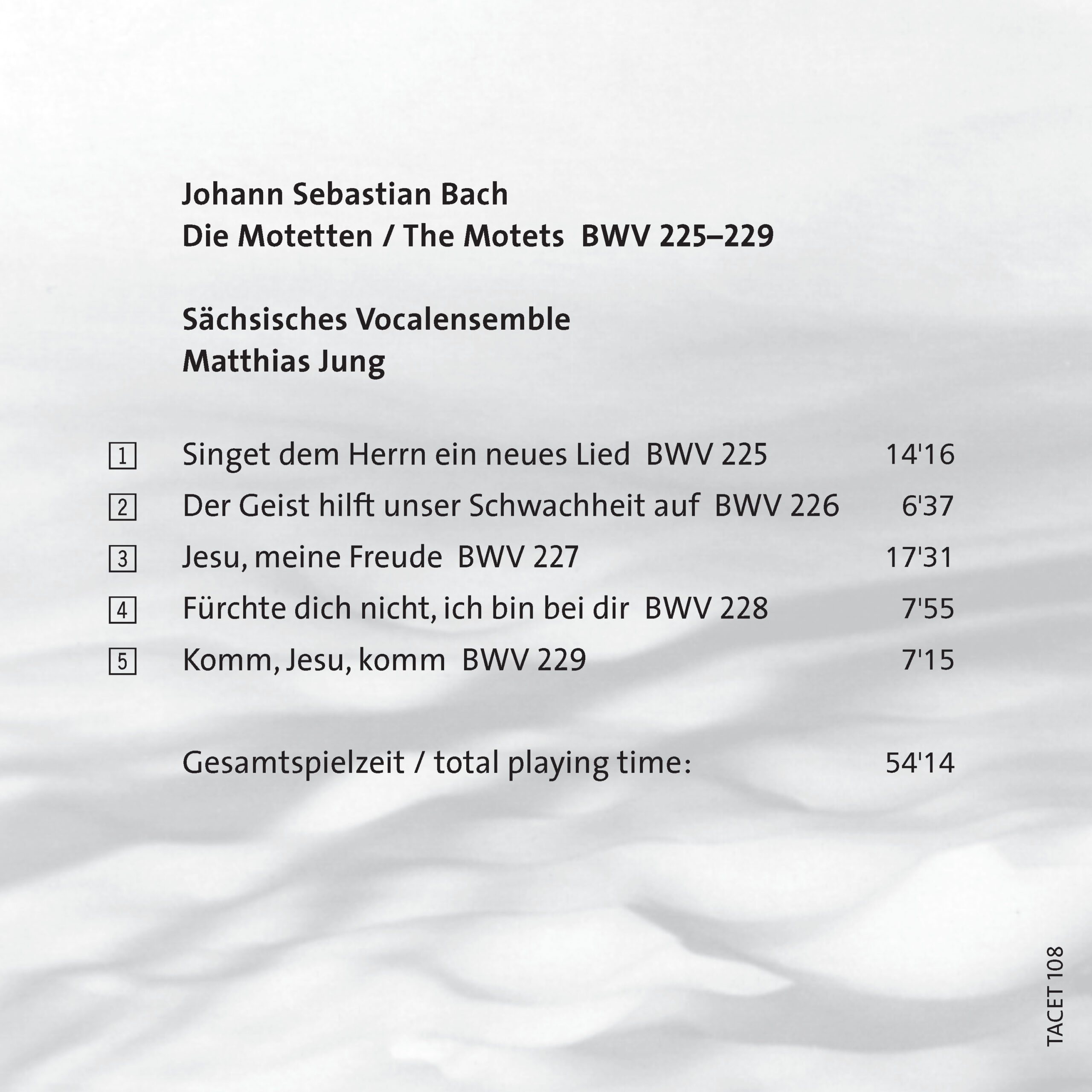




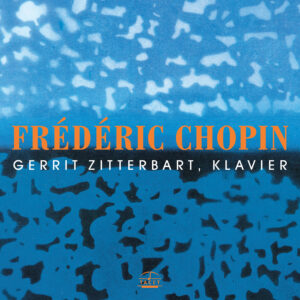
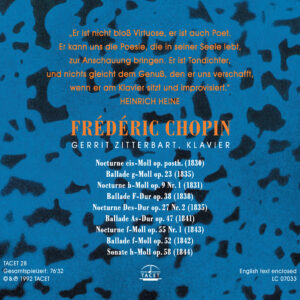

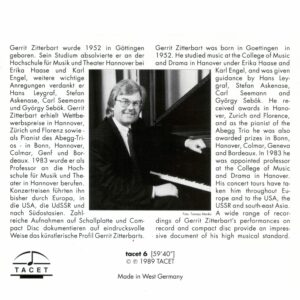

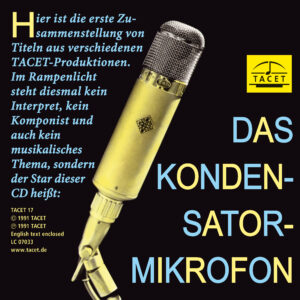
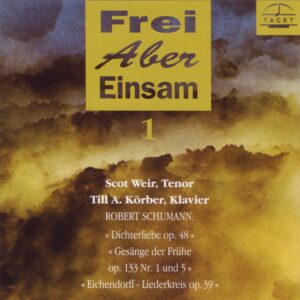
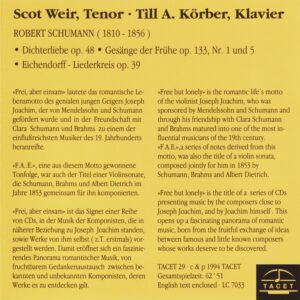

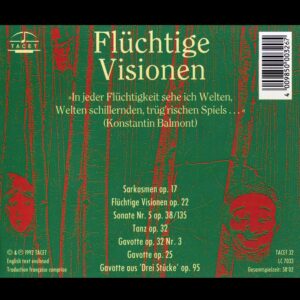
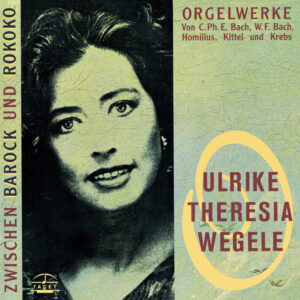
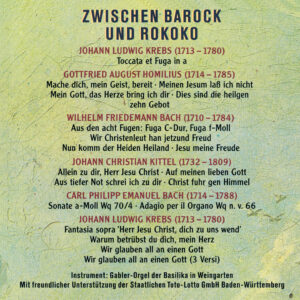
Klassik heute –
Artistic quality: 10 out of 10
Sound quality: 10 out of 10
Overall impression: 10 out of 10
Can the crisis in the classical music industry be overcome with bustling marketing measures like multichannel recordings and new technology standards? One may doubt it. Even Tacet is releasing the new recordings of Bach’s motets by the Sächsisches Vocalensemble (founded in 1996) not just on CD, but also in multichannel format on DVD. Yet the CD version of this remarkably spatial recording is more than sufficient. Musically, too, one can rejoice in an interpretation that, with its optimal transparency, tonal sensitivity, and emotionally charged textual intensity, ranks among the reference recordings. Here, there are no mannerisms, forced rhetorical effects, or vocal deficiencies to disrupt the experience. The nearly 30 singers maintain their vocal sovereignty at all times—whether in the double-choir fury of Singet dem Herrn or in the fragile texture of the Fürchte dich nicht motet. Everything sounds relaxed yet meaningful, perfectly balanced in blend, and disciplined in textual articulation. Anyone who doesn’t yet own this Bach treasure need look no further.
Norbert Rüdell
klassik.com –
This CD/DVD combines cutting-edge recording technology with the mastery of an outstanding ensemble at the highest level, making it a particular delight for audiophile choral music lovers. In short: A recording with the potential to become a classic.
--> original review
Rondo. Das Klassik & Jazz Magazin –
Matthias Jung has nearly the ideal professional ensemble at his disposal: young, flexible, and well-balanced voices that encounter no technical challenges and maintain striking clarity even in the most intricate polyphonic chaos of Bach—such as the exuberant eight-part jubilation of Singet dem Herrn (BWV 225), where Bach alternates and combines both choirs in the most varied ways. In this whirlwind of sixteenth notes, you can truly follow every individual voice, especially since the articulation couldn’t be more refined. This is certainly also due to the fabulous recording technique of the Tacet experts…
Fono Forum –
Mozart once expressed a desire to add "an entire orchestra" to the vocal lines of one of Bach's motets. Today, performing these works with colla parte instrumentation has become standard practice. Similarly, Matthias Jung does not have his Sächsisches Vocalensemble sing a cappella. He avoids a one-size-fits-all approach—the only constant is his use of continuo; otherwise, he proceeds with considerable freedom and variety. This applies not only to the inclusion of instruments but also to the vocal forces employed. The choir’s flexibility and agility are somewhat reminiscent of the Balthasar-Neumann-Chor. In terms of textual clarity and affective expression, it proves itself to be a top-tier ensemble.
R. E.
Dresdner Neueste Nachrichten –
Matthias Jung and the Sächsisches Vocalensemble: Award-Worthy!
For the eighth time, the prestigious "Cannes Classical Awards" will be presented this Sunday. The ceremony takes place in Cannes during Midem, the world’s largest international music trade fair. Over a hundred music journalists and editors-in-chief from six countries have sifted through the overwhelming number of classical CD releases to select the most important and finest recordings, nominating them in 20 categories. Among the nominees in the "Choral Works of the 17th/18th Century" category are Dresden conductor Matthias Jung and the Sächsisches Vocalensemble with their Tacet (108) recording of Bach’s motets, competing against none other than Nikolaus Harnoncourt (St. Matthew Passion, Teldec) and Frieder Bernius (Zelenka: Missa Dei Patris, Carus).
The chances that this outstanding motet recording will win the top prize are exceptionally high. Matthias Jung is flying to the French Riviera this weekend—an honor well-deserved for him, his singers, and sound engineer and Tacet CEO Andreas Spreer. Unlike some other recording awards, the "Cannes Classical Award" focuses on artistic excellence in interpretation, not on whether the artists are backed by a major label or—like Tacet—a small but elite company.
There is no doubt that Matthias Jung and the Sächsisches Vocalensemble have delivered a reference recording that stands alongside the highly acclaimed versions by René Jacobs and John Eliot Gardiner, while surpassing many others. Beyond its exceptional interpretive quality (already praised in the DNN), this recording is technically the only CD to fully embrace 21st-century sound standards—and on DVD, it can be experienced in "Tacet Real Surround Sound".
G. Blumenstein
Classics Today –
This set of Bach motets performed by the Sächsisches Vocalensemble (Saxon Vocal Ensemble) has everything that the recent Sarum Consort disc on ASV (type Q3347 in Search Reviews) does not: verve, unusually articulate expressive gestures that arise from the texts, exceptional ensemble precision, illuminating inner detail, and an overall atmosphere that conveys a sense of occasion and gives the distinct feeling that these singers both understand and love this music. These are uncompromisingly exciting performances that show, given a virtuoso ensemble and some of the most challenging music ever written for voices, just how captivating choral music can be. Some very critical listeners may complain that the energy level and uniformly brisk tempos are just a little too over-the-top, but where does it say that Bach has to be trod with heavy boots and ankle weights? Rarely will you hear these unique little masterpieces performed with such a well-balanced concept of abandon and refinement.
The rarely performed ′Fürchte dich nicht, ich bin bei dir′ (BWV 228) is a classic example of how a really fine chorus approaches a work of equally rare difficulty, never letting the energy fade or giving any slack to the relentlessly surging, churning lines. Although there are no texts included in the liner notes--unacceptable for a recording of vocal music--you could legitimately argue that the singers′ enunciation is so clear that printed texts aren′t necessary. The accompaniment, consisting of a small contingent of strings, two oboes, taille (a tenor oboe often employed by Bach), Baroque bassoon, and organ is tasteful, appropriate, and ideal--supportive without being intrusive.
Yes, there is one thing the ASV recording--and several others--have that this one doesn′t: the motet BWV 230, Lobet den Herrn, alle Heiden, whose authorship and qualification as a motet have been questioned. And that′s a shame, because these singers undoubtedly could have torn the pics off this high voltage work, which, with the other five, would have formed a formidable and near-definitive recording of the traditionally accepted set of six. Buy this one anyway--and add a more complete collection from one of the reference recordings described in the earlier ASV review (Q3347). The sound here (no recording location is given) is exemplary.
David Vernier
Classica –
The performances by the Sächsisches Vocalensemble under Matthias Jung are marked by great vitality, largely due to brisk tempos that bring out the theatrical polyphony of the music. Thanks to an impeccable handling of the musical narrative, the choir’s agility and brilliance are perfectly suited to the motets—with BWV 225 standing out as a complete success.
Stéphan Vincent-Lancrin
______________________________
Original Review in French language:
…les interprétations du Sächsisches Vocalensemble dirigé par Matthias Jung se caractérisent par une grande vitalité, qui repose en grande partie sur des tempos assez animés, qui rendent la polyphonie théâtrale… …Grace à une conduite irréprochable du discours musical, la volubilité et le brio du choeur conviennent parfaitement aux Motets, le BWV 225 étant par exemple une réussite totale…
Stéphan Vincent-Lancrin
Deutsche Welle, CD-Tipp –
An Award-Worthy Recording
An Award-Worthy Recording I would have recommended this Bach CD to you even without the current context of the recently concluded Bach Festivals in Leipzig and Eisenach. Last year, for the 250th anniversary of the Thomaskantor’s death, there was a flood of Bach performances—some memorable, others less so. Not everything performed at the historic Leipzig Thomaskirche was equally impressive. However, among the best I’ve heard recently in terms of Johann Sebastian Bach is this CD by the Sächsisches Vokalensemble, founded in 1996 and led by Matthias Jung…
"Singet dem Herrn ein neues Lied"—one of five motets listed in the Bach-Werke-Verzeichnis as BWV 225–229. Each motet sounds so fresh and newly minted that you forget the long performance tradition that often weighs on Bach’s motets like a burdensome legacy, robbing many choirs of their spontaneity. Of course, it’s also due to the demanding vocal requirements Bach’s works place on a choir. The Sächsisches Vokalensemble, however, seems to master all musical and technical challenges with effortless ease: light as a feather, with precise high notes, breathing phrasing, and fluent lines. The intonation is impeccably clean, the attacks secure, and the polyphonic interplay so clear that one might think of musical instruments rather than human voices…
Even in the contrapuntally intricate passages—where other choirs might struggle just to get through—this ensemble never runs out of steam. There’s no empty phrasing; instead, you always sense tension and freedom in their musical shaping…
All in all: a highly recommendable recording—Bach’s motets BWV 225–229 by the Sächsisches Vokalensemble under Matthias Jung, released by TACET (catalogue number 108).